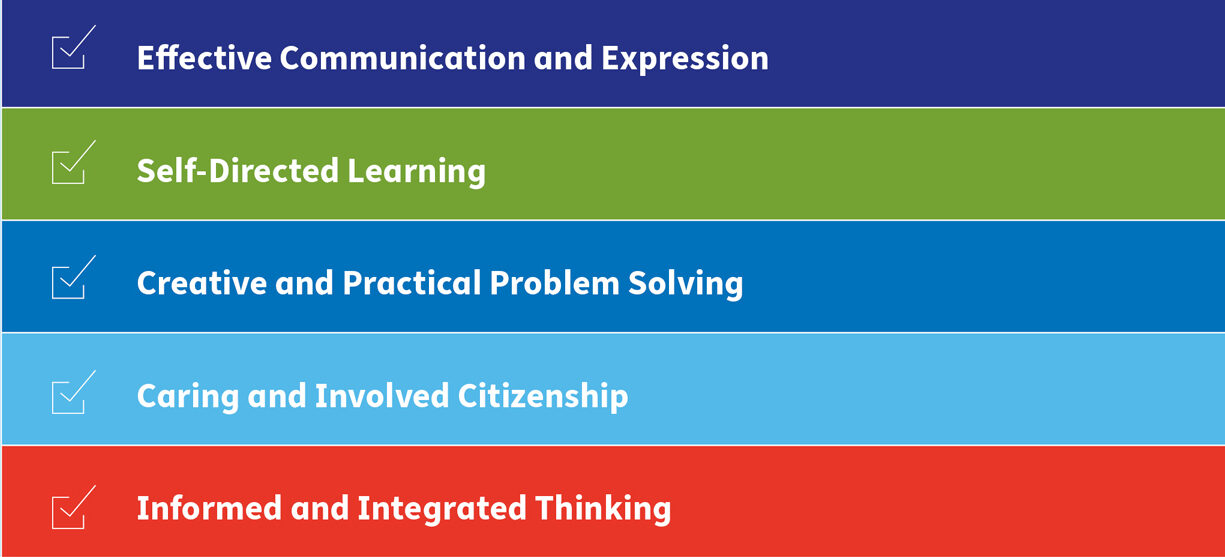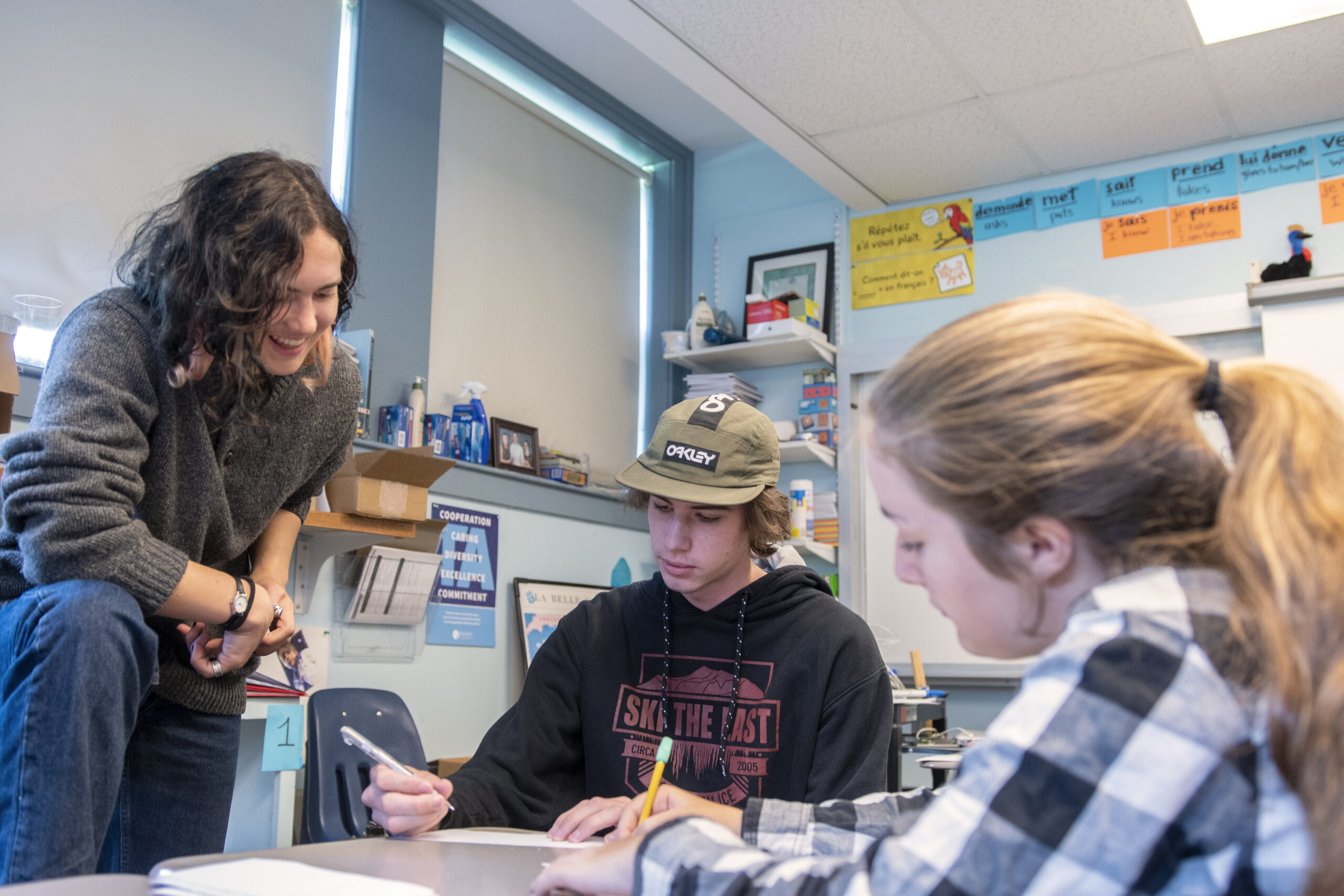TA’s approach to proficiencies at a schoolwide level centers on a set of five transferable skills. The TA Transferable Skills transcend specific academic subjects and can be applied in a variety of contexts, supporting our students’ growth and success during their time at TA and beyond.
Thetford Academy’s 5 Transferable Skills

Each transferable skill includes a set of performance indicators, designed to provide clarity for students about what the skill looks like in real life and ways to work toward and demonstrate mastery. Click here for a more detailed look at TA’s 5 Transferable Skills and performance indicators.
During their time at Thetford Academy, students develop a portfolio that demonstrates their journey toward proficiency and mastery of TA’s Transferable Skills. The portfolio requires students to document and reflect on their growth as a learner, gathering and sharing evidence through coursework, photographs, correspondence, and awards. Students’ written reflections then connect their evidence to each of the transferable skills at a detailed level.
Each spring, students are invited to present their portfolios to an audience. Depending on their grade level, this might be their advisory group or a more public audience that can include family members, teachers, and classmates. These roundtable discussions are an opportunity for students to share their growth as a learner over the past year and their goals for the future.
As part of their graduation requirements, seniors are required to make a formal presentation that exhibits proficiency in the TA Transferable Skills. The senior roundtables provide a culminating experience that synthesizes achievements in coursework, civic engagement, and extracurricular activities over the course of their time at Thetford Academy.
Some courses at TA use a proficiency model for grading. A proficiency is a combination of skills, abilities, and knowledge needed to perform a specific task. Proficiency-based courses include content-specific standards by which student work and performance is assessed, descriptions of what students need to do (rubrics, checklists, etc.), formative and summative assessments, multiple opportunities to meet proficiencies, a separation of achievement from the effort, and feedback to students in order to get better or learn more. Progress and grades in classes using proficiency-based grading are categories using proficiency level descriptors (Exceeding, Proficient, Developing, Emerging), instead of the traditional A-F grading scale.
Read more about implementation of proficiency-based grading in a September 2024 news post.







